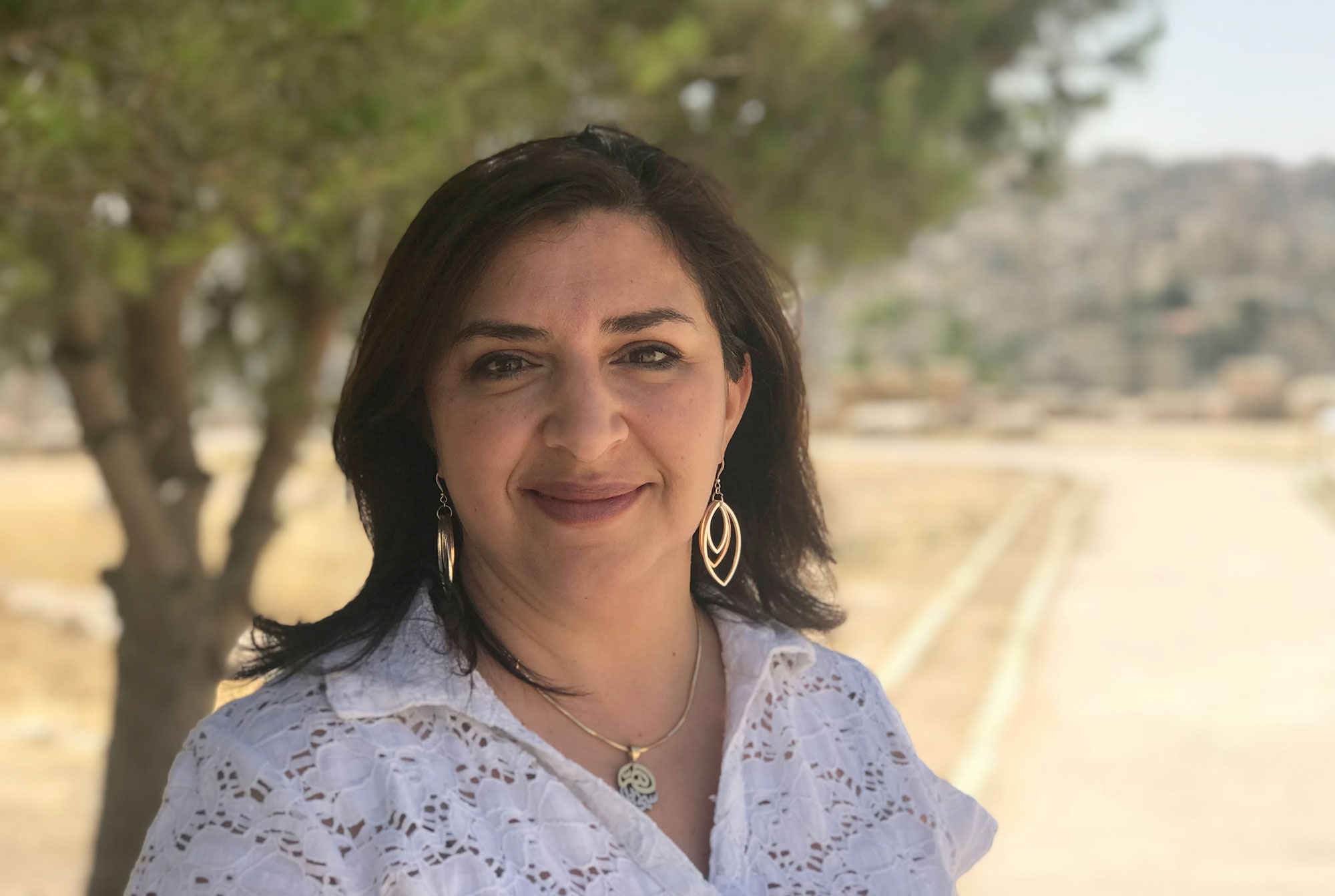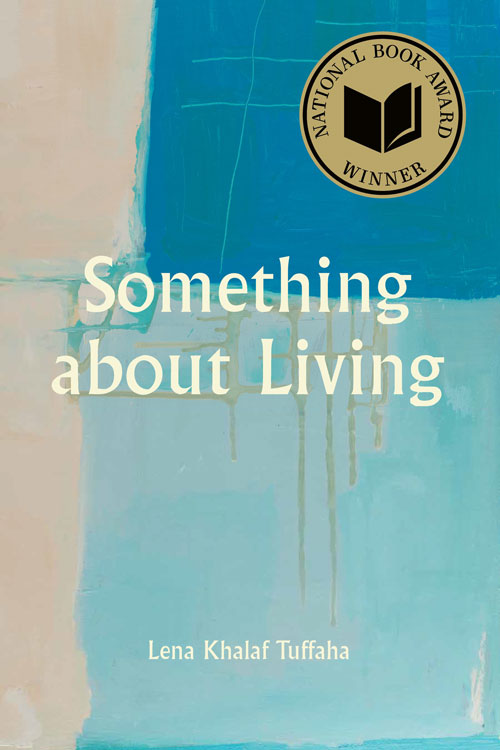Poet of resistance Poet of resistance Poet of resistance
Lena Khalaf Tuffaha writes with balance: violence and liberation, bias and truth, destruction and possibilities.
By Shin Yu Pai | Photo courtesy of Lena Khalaf Tuffaha | January 7, 2025

Lena Khalaf Tuffaha’s award-winning poetry collection, “Something About Living,” explores genocide and the cultural bereavement that results from it. Her documentary-style poems bear witness to the violence enacted upon Palestinians, diving into human suffering, colonialism and fracture. Through her bold appropriation news media language, she provokes readers to consider how Western society participates in the erasure of the Palestinian experience and how that effacement is made palatable.
 The National Book Award judges lauded the collection for exploring Palestinian life through the lens of American English. “‘Something About Living’ opens with a single bird and ends in a dazzling meteor shower, and in between lies something of a marvel—an electric and sobering song crackling with possibilities for a homeland fractured and besieged by Empire,” according to their notes.
The National Book Award judges lauded the collection for exploring Palestinian life through the lens of American English. “‘Something About Living’ opens with a single bird and ends in a dazzling meteor shower, and in between lies something of a marvel—an electric and sobering song crackling with possibilities for a homeland fractured and besieged by Empire,” according to their notes.
Tuffaha, ’08, whose heritage is Palestinian, Jordanian and Syrian, was born in Seattle and spent much of her childhood in the Middle East. Her father, Musa Khalaf, ’77, graduated from the UW with a Master’s in Public Affairs. His work took the family to Saudi Arabia and Jordan. When the first Gulf War erupted, the family moved back to the U.S. Though the plan had always been to return to the Pacific Northwest where Tuffaha could attend school, the abrupt dislocation created rupture and hardship. “I left as things were falling apart, and not because we were ready to,” Tuffaha says. “There’s no Arab American I know who doesn’t feel the layers of complexity: to be in your homeland and to belong to a place that is complicit in the undoing of your homeland.”
Tuffaha eventually found her way to the UW where she studied comparative literature. She later returned to the University for a certificate in literary fiction writing. But her passion for writing, and specifically poetry, preceded her literary and academic studies. Tuffaha’s grandfather, Husni Fariz, had been a famous poet of Jordan. In her early years before leaving Amman, Tuffaha watched him work on his writing every day and admired his commitment to his discipline. He spent his life teaching, and the boys’ high school in Fariz’s hometown of Al-Salt bears his name. Locally, Fariz’s books are available in Arabic at Suzzallo Library.
“There’s no Arab American I know who doesn’t feel the layers of complexity: to be in your homeland and to belong to a place that is complicit in the undoing of your homeland.”
Lena Khalaf Tuffaha
After college, Tuffaha went on to study poetry in the MFA creative writing program at Pacific Lutheran University, where she worked with poet Peggy Shoemaker. She credits her mentor with helping her to move from writing individual poems to conceptualizing and crafting book-length collections.
But before pursuing her MFA, Tuffaha spent 10 years volunteering with Arab American community organizations and working with journalists and editors to improve their cultural understanding. “The quality and quantity of coverage about issues of Arab American concern is abysmal,” says Tuffaha. She ensured that authentic stories, where Palestinians could narrate and speak of their own lived experiences, made it into the Western press. “If people can tell their stories, then readers can reach their own conclusions,” she says. “So many stories are run without any Palestinians quoted. Anytime a Palestinian says something, there has to be some contextualization around it. All of my work was to try and raise awareness and to connect journalists with actual Palestinians.”
Tuffaha’s work with the news media infuses her poems. Her works peel back layers of language to show bias and rupture in ways that only poetry can. “As June Jordan teaches, poetry is about telling the truth,” Tuffaha says, “and about finding a direct line to that truth.”
With her recent National Book Award, Tuffaha, who lives in Redmond and has been traveling across the country for literary events, is excited for the boost in attention the honor is bringing. “It’s hard to get visibility, to get bookstores to know that your book exists and for them to order it and make it available to readers,” she says. “The biggest gift [of this award] is making it visible to teachers, librarians and professors, and a much larger range of readers.”